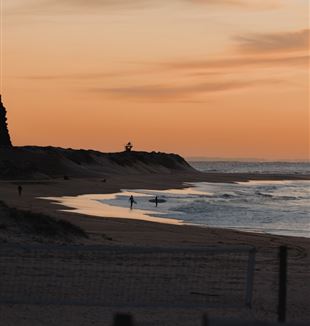
“Chastity, Reconciliation of the Senses"
A commentary about Bishop Erik Varden's book "Chastity, Reconciliation of the Senses" and its relevance to the current context of legislation in Alberta regarding gender identity and parental rights.A recent discussion at our School of Community centered on the legislation proposed by Premier Danielle Smith concerning parental rights and the appropriate care offered to children struggling with questions of gender identity. Considering our vocations as parents and adults engaged in political questions concerning the common good, what should be our attempt to answer the enormous questions raised by the transgender movement? While the premier’s proposal is a noble attempt to involve parents in these issues, there is recognition on our part that despite the best laws and policies, questions raised by these issues precede and are more fundamental than anything a political policy can satisfactorily answer.
Chastity: Reconciliation of the Senses, by Bishop Erik Varden (London: Bloomsbury, 2023) is an excellent help in examining these questions from this fundamental position. At the crux of these issues are truly matters of the heart. Varden asks, “It is hard to entertain a chaste approach to the body if we have a reductive understanding of that of which the body is capable; if we reduce a dimension of ourselves configured to the image of God simply to a discardable garment of skin. We carefully, sometimes obsessively, attend to the body’s present needs, appetites and pains. But are we not often deaf to its crying out for ways to transcend itself while staying fully itself? Are we not closed to the thought that our senses’ claims may call for something that cannot be found in this world?” (57).
At stake is nothing less than a proposal that answers the question—who and what is the person? Any satisfactory attempt at an answer must wrestle with these more fundamental questions of existence—it will require an education of our freedom and judgements of the heart as Giussani so often reminded us. After considering a Christian response, Varden looks with honesty and tenderness at the reality of living the various tensions within desire. Varden’s methodology will seem familiar to us—he explores his human experience as a celibate monk, yet also as a man, in conversation with art, music, opera, poetry, literature and history. He examines the miraculous attraction of chastity for the Christian—a virtue much maligned and misunderstood in our time—yet also very timely and needed for the questions raised by contemporaries. Despite common disregard for spiritual matters today Varden notes, “This does not mean, though, that our age is impervious to the Spirit. The claims of the soul are evident for being often expressed negatively, a function of pain. While moderns are loath to speak of God, they readily admit to feeling trapped in creaturely limitation. While giving no explicit credence to doctrines of the afterlife, they are consumed with a yearning for more. While determined to assume their incarnate humanity, they vaguely know that our body points beyond itself, since every apparent satisfaction is but achingly provisional.” (46). One would be hard pressed to find a better description of the transgender dilemma than this.
Perhaps, Varden suggests, it is the reality of beauty that could become the starting point for a conversation with those who see these issues from a position very different than ours, “To do something beautiful for its own sake, for the intrinsic delight of it, without thought of gain; this, I’d say, is a way of beginning to live chastely in this world, poised to balance elegantly on whatever surging billow providence provides as a means to bear us homeward, towards the shore.” (59). While we support any political effort that secures the true good of the child and recognizes the fundamental role parents play in their child’s education and health care—policy will only ever be a partial measure. It will be our witness as parents and Christian adults to a life of virtue and beauty, and what is truly human, that will be far more convincing than any possible policy proposal.